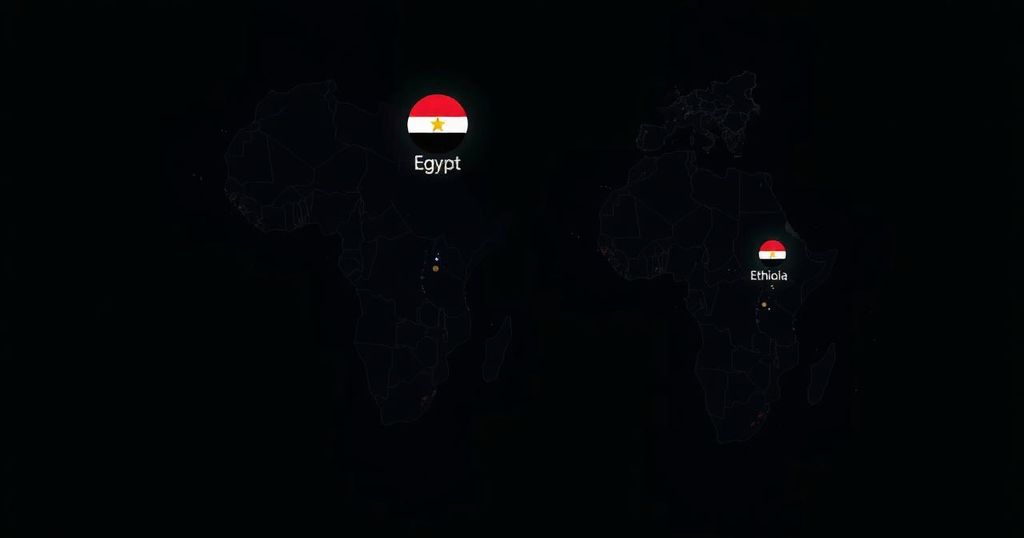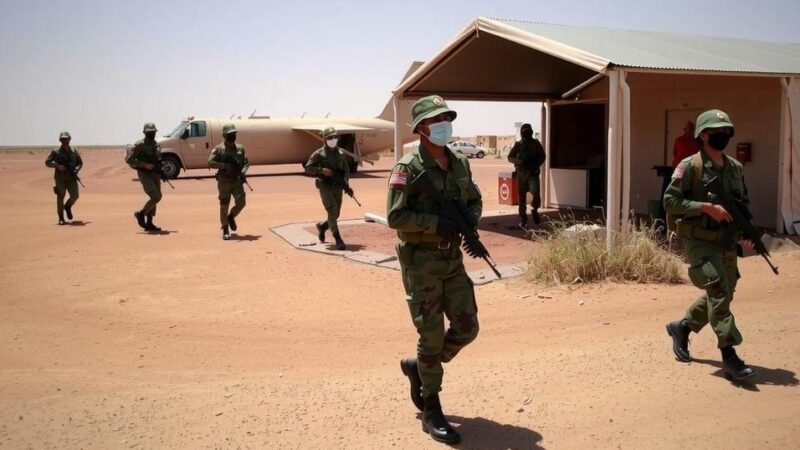Egypt and Ethiopia have intensified their rivalry over the Nile in what appears to be an arms race in Somalia. As Egypt provides military aid to Somalia, Ethiopia perceives this as a threat to its security and sovereignty. The situation exacerbates regional tensions and complicates the fight against terrorism, especially in the context of Somalia’s ongoing struggles with Islamist insurgency and geopolitical maneuvers involving both nations.
The longstanding conflict between Egypt and Ethiopia regarding the Nile River has escalated into an arms race within Somalia, complicating both nations’ efforts to collaborate against terrorism. Somalia asserts its sovereign prerogative to dictate arms supply and the presence of foreign troops, a stance perceived by Ethiopia as a direct security threat, particularly given Egypt’s renewed military assistance to Somalia. Recently, Egypt delivered military hardware to Somalia, positioning itself as a strategic partner in the region, while Ethiopia, which has existing military contingents in Somalia, expressed grave concerns regarding these developments, citing risks that arms could fall into the hands of extremist groups like al-Shabaab. The delivery of Egyptian arms follows a prior exchange in which Ethiopia reportedly supplied weapons to Puntland, further escalating tensions between the two nations. Both countries have exchanged accusations regarding violations of sovereignty and the implications for regional security, with Somalia condemning Ethiopia for these actions. This friction traces back to a controversial agreement between Ethiopia and Somaliland, which Somalia views as an encroachment on its territorial integrity, intensifying diplomatic strains. As Somalia approaches the establishment of a new security force later this year, it is pivoting towards Egypt for support in a departure from reliance on Ethiopian troops, which could reshape the power dynamics within the Horn of Africa. These evolving relationships, influenced by historical grievances over the Nile water management, illustrate a broader regional instability, as external military aid encounters local aspirations for security and sovereignty within Somalia.
The article highlights the increased friction between Egypt and Ethiopia as they vie for influence in Somalia amidst the ongoing crisis of instability and insecurity driven by terrorist groups like al-Shabaab. The core issue revolves around the Nile River, with both countries engaged in a longstanding dispute over water resources, particularly focusing on the Grand Renaissance Dam in Ethiopia. This geopolitical struggle has recently manifested in an arms race, complicating regional cooperation and efforts to combat terrorism. Furthermore, past agreements and ongoing military support from Egypt to Somalia are creating new complexities in Somalia’s internal security situation and its relationships with neighboring countries, particularly Ethiopia.
In conclusion, the arms race between Egypt and Ethiopia in Somalia underscores a deepening geopolitical crisis where historical grievances over the Nile are influencing contemporary security dynamics. Somalia’s assertion of sovereignty against foreign arms supplies places it at the center of a larger struggle, forcing both regional powers to consider the implications their actions hold for stability and counterterrorism efforts. As the situation evolves, the need for a coordinated and thoughtful approach to peace and security in the Horn of Africa remains critical, with the potential for lasting implications on national sovereignty and regional harmony.
Original Source: nation.africa







